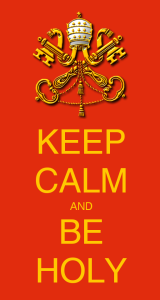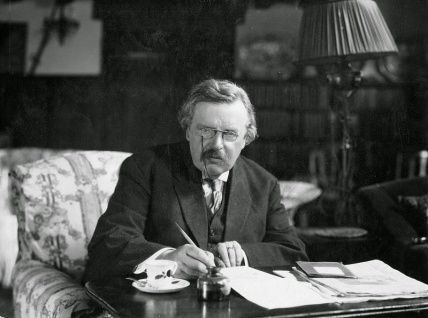This post marks the end of this line of pondering. I have considered three reasons that contribute to the fact that Mass attendance at Traditional Masses has plateaued in England and Wales. Recusant Mindset. Elitism. And Over-focus on the Mass.
How to break out of the Recusant Mindset
As I mentioned, the Recusant mindset is both an instinctual reaction and an ingrained historical memory for English and Welsh Catholics. It is a coping mechanism. So really the way to break out of that is to apply some of the tools of modern psychology. The first hurdle is to identify that the problem exists. Once that is identified and held consciously in mind, Grace can start working in ways it could not before.
The cause of the threat is the “Catholic news” – information. Too much “bad news” creates a panic response. So perhaps a program of recovery around Catholic news obsession would be in order. Seeking a Spiritual Director would be optimal, as he would be able to advise how to carry out that recovery in practice.
I would suspect a Spiritual Director would suggest abstinence from viewing and/or gossiping about “Catholic news”, as a start. A period of voluntary abstinence from all internet media, or something like that.
With all that spare time, one could use it fruitfully in improving one’s personal relationship with God (ideally under guidance of a Spiritual Director). Clearing out any Grace-blocking items from one’s conscience, by careful examination and Confession.
In a way, it is about living life here and now, having Faith, being Holy.
 How to break out of institutionalised recusancy, for instance in the cases of close-knit Traditional Communities. Maybe situations where the Priest (and therefore Spiritual Director) is also party to this mindset. Well, the recovery of the whole, starts with the recovery of the individual. But if Pastors were able to request their flock to commence a period of abstinence from Internet Media and News, that would be a great start.
How to break out of institutionalised recusancy, for instance in the cases of close-knit Traditional Communities. Maybe situations where the Priest (and therefore Spiritual Director) is also party to this mindset. Well, the recovery of the whole, starts with the recovery of the individual. But if Pastors were able to request their flock to commence a period of abstinence from Internet Media and News, that would be a great start.
Then I hear the clamour “but if we were to abstain from Internet Media and News, how would we hear the good news and advice from CatholicScout?!” – well, just how many bloggers do you hear of suggesting people should abstain from reading Internet Media and News? Not many. I don’t write this blog to get “hits” or “followers”, I write it to bear witness to truths which I have learnt.
I found voluntary abstinence very helpful, so I don’t read Internet media and News before 8.00am or after 6.00pm. I also freely choose not to read Internet media and News from time to time. Instead spending the time doing something fruitful, such as praying a Rosary. Most of all I keep very close to my heart the maxim written above. Keep calm, and be Holy. It works. Remember, ask yourself “What would Jesus do?” Would Jesus be spending His day on Facebook, or surfing for the latest gossip from Rome? No. He would be about doing His Father’s will, and as a result, be Holy.
Elitism
In my post on Elitism, I dealt with three manifestations, there are more, but these three are prominent enough that most people will identify them.
The Remedy for Young Fogeyism
Humility. Docility to the Spirit, which whispers to you, when you read the Lord’s Words:
No man can serve two masters. For either he will hate the one, and love the other: or he will sustain the one, and despise the other. You cannot serve God and mammon. Therefore I say to you, be not solicitous for your life, what you shall eat, nor for your body, what you shall put on. Is not the life more than the meat: and the body more than the raiment?
[…]
And for raiment why are you solicitous? Consider the lilies of the field, how they grow: they labour not, neither do they spin.
But I say to you, that not even Solomon in all his glory was arrayed as one of these.
And if the grass of the field, which is today, and tomorrow is cast into the oven, God doth so clothe: how much more you, O ye of little faith?
Matthew 6:24-29
Do not be solicitous. It doesn’t mean “wear a potato sack”. But if you find this level of abandonment a little to challenging, don’t just shirk away without asking for God to help you to fulfil His counsels. He will help.
After having asked for God’s help in fulfilling His counsels, and having confessed your lack of faith, and infidelity to His counsels. You can always take the path of modesty.
Be modest. Modesty is an off-shoot of humility. The two go together. Modesty seeks not to be noticed, think of it as Catholic Camouflage. How can I not attract attention?
Bright pink socks or black socks? My best gold and green waistcoat or not?

There is nothing sinful about wearing beautiful clothing. There is something very sinful about vanity. If it is for show, or to participate in a show, then it is vanity. Public show of vanity, is really an occasion of public scandal. For here, a sin is being expressed in the public.
So what is the remedy for Vanity? Well, again it is abstinence first, then the practising of it’s opposing virtue humility. Does that mean wandering into Mass in tattered jeans and a t-shirt? Or flagellating oneself publicly while wearing sack-cloth and ashes? No.
Firstly, abstinence. If there is an occasion of sin, one should avoid it. If there is a Mass where there is a public show of vanity, one should probably look to go to Mass elsewhere (if you have such an option!).
Correction of self. The sin that needs to be corrected is within ourselves. I can only cooperate with God’s grace to save my soul. I can’t save anyone elses. So my job is not to police them out there. It is to regulate myself, by cooperating with God’s Grace. The first thing that I can recommend is getting a Spiritual Director (you will see that “get a Spiritual Director” is a running theme…) who is not part of that vain scene.
It should be someone who understands that we want people to be watching Jesus, not looking around in the pews comparing. Shift your focus off you, and others, and on to the Eucharistic Lord. Modesty is the key.

This is Who should be drawing people’s attention, not you.
The Remedy for Traditional Catholic Supremacists
Humility. I think it will be hard for Traditional Catholic Supremacists to let go. So much energy in protecting their Mass. So many years, so much effort. But let go they must.
Humility to adopt new perspectives, to accept new criticisms. Humility to try new things and new approaches. An email correspondence of mine, pointed out that this problem is very similar to a psychological phenomenon he has witnessed. He said it may be recommended if these Supremacists are in groups to humbly and honestly inform themselves of the psychological phenomenon of GroupThink and to practice the precautions regardless. Thank you for that pointer.

Lastly, and this ties to the next Elitist group, transparency! No more secrecy!
The Remedy for Misers and Old Money Catholics
Humility. This out of all three, I think will be the hardest group to remedy. Detachment from money is very, very tough.
Voluntary transparency would be a good manifestation of the humility required to remedy these problems. I know very few people who would voluntarily make their accounts public, but it could be done. It could also be given as a penance by astute pastors…

Of course the Miser or Old Money Catholic could be dishonest in publishing his accounts, but that would be more coals heaped upon their head.
Lastly, I think the people who find Old Money Catholic odious (which I may add, I am included), is the perception that they do not labour for their earnings (ref: 2 Thes & Gen 3). A remedy for such a person would be for them to earn a living, which pays for their bread (not relying on the fat). Transparency of accounts also would go miles to correct it.
What to do with the Old Money itself though? Well I think Rerum Novarum is the way… voluntarily spread it out. Imagine if all the Misers and Old Money Catholics shook off their bonds and pooled the money to set up a Traditional Catholic Building Society, helping Traditional Catholics own property close to other Traditional Catholics?
Over-focus on the Mass
The remedy for the over-focus on the Mass, is a larger problem than the one than the others. The others, with good will, can be self-corrected. Sure sound preaching against these problems will be needed. But the over-focus on the Mass is out of the hands of ordinary people.
There are organisations such as FIUV, who may have the clout to express these issues, but ultimately the response lies in the Church authorities. Pope Benedict XVI promulgated Summorum Pontificum, but the Bishops ignored it. What can you do when Bishops ignore the Pope?

Pope Francis celebrating the Traditional Mass? well we can dream…
If His Holiness Pope Francis, had a sudden blinding conversion to the Traditional Mass, and by some bizarre misdirection was reading this article, I would recommend an addendum to Summorum Pontificum.
Something along the lines of:
It is binding that every Diocesan Bishop shall set up at least one Church per major population centre (over 100,000 inhabitants) that is to be exclusively dedicated in perpetuity to offering the Mass in the Extraordinary Form. These Churches are to be in locations that are easily accessible to the majority of the population, close to the centre and near good public transport terminals. The Diocesan Bishop is free to invite a community to take care of the Church, otherwise he is bound to diligently provide Sacred Ministers for the exclusive celebration of the Vetus Ordo.
So aside from sheer fantasy, I believe that the remedy for this problem is:
For Traditional Priests to educate (and preach) on the Encyclicals of the Popes. Particularly Summorum Pontificum. For Traditional Priests to preach and practice more of the Traditional Devotions (Sunday Rosary, Sermon and Benediction, Procession on the Third Sunday of the Month, Weekly Thursday Holy Hour, October Devotions, Processions, public Novenas etcetera).
For laity to educate themselves on the Encyclicals of the Popes. Particularly Summorum Pontificum. For Laity to practice more of the Traditional Devotionals at home and in public. For them to ask Priests to lead these Devotions.
For photographers, to turn around and photograph the Nave, not too much of the Sanctuary!!
Lastly, of course, in all of these, we will be battling apathy.
Evil reigns when good men do nothing.









 On the international traditional Catholic newsblog,
On the international traditional Catholic newsblog,